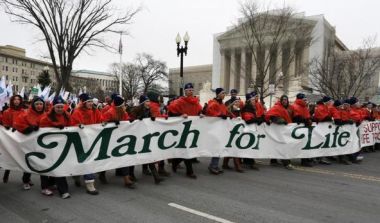Anti-abortion group invokes environmental law to close down Planned Parenthood clinic

An anti-abortion group in San Francisco is currently locked in a lawsuit against a Planned Parenthood clinic in the city that involves a long-standing enviromental law in the state of California.
According to an editorial in the San Francisco Chronicle, the pro-life group Respect Life South San Francisco filed a lawsuit against the Planned Parenthood clinic alleging that there was no environmental review conducted before the clinic was granted permission to convert a vacant downtown building into a healthcare facility. The lawsuit also claimed that the conversion and subsequent operation of the clinic would have "significant demonstrable impacts on traffic, parking, and public safety resulting from historic and reasonably probable First Amendment activity."
The lawsuit then claimed violations of the California Environmental Quality Act or the CEQA.
The editorial revealed that the lawsuit has effectively halted the development of the building for the past 18 months while the case is being argued in court, even though there had been a tentative ruling in favour of Planned Parenthood in July 2014 by San Mateo Superior Court Judge Marie Weiner.
The California lawsuit is one of the many cases that the Planned Parenthood organisation faces nationwide.
Last month, the American Center for Law and Justice also filed a case against a Planned Parenthood unit in Los Angeles, accusing it of overcharging the federal government by marking up reimbursement fees in order to make a profit.
ACLJ attorney Walter Weber, who is handling the case, told One News Now that whistleblower Victor Gonzalez, claimed Planned Parenthood's management increased reimbursement figures by at least ten times the original amount when billing the federal government.
Gonzalez, who is a former Chief Financial Officer of Planned Parenthood, accused one facility of charging the government around $155,000 when the actual amount owed was only $32,000.











